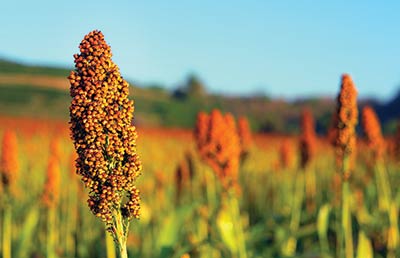Are You a Farmer?

Farmers are allowed to only make one estimated tax payment each year on January 15 (for 2022 tax returns it would be January 17, 2023). Or they can elect to file and pay 100% of their income tax by March 1 each year.
A farmer is required to have at least 66.67% of their gross income be from farming. A Schedule F farmer will report their gross income reported on Schedule F (usually line 9). However other items of income reported by the farmer will not qualify as farm income such as gains from selling or trading in farm equipment. Also, any cash rent income received by the farmer will not qualify as farm income.
This can cause many farmers to no longer qualify as a farmer for estimated tax purposes, even though gains on selling farm equipment still qualifies for farm income averaging.
A farmer who is partner in a farm partnership will have their share of gross farm income reported on their Schedule K-1. However, this is only if the net farm income is reported as self-employment income. If it is not reported as SE income, then the tax preparer needs to make sure to report gross farm income as a footnote on the Schedule K-1. This is also true for S corporation farmers.
This means that many farmers will no longer be “farmers” for estimated tax purposes. If you qualified in 2021, you automatically qualified in 2022. If you did not qualify in 2021, then you need to make sure you don’t have too much non-farm income.
If you know you won’t qualify and you did not make any estimated tax payments, know that your penalty this year will be much greater than in prior years. For 2021 tax returns, the interest rate for the penalty calculation was around 3%. The penalty for 2022 returns is already at 6% for the fourth quarter and will likely go to 7% for the first quarter of 2023.
Also, since you no longer are a farmer, you are required to pay in 100% of 2021 tax or 90% of 2022 tax up from 100% of 2021 tax or 66.67% of 2022 tax. This can easily result in an estimated tax penalty of over $1,000 if you are not careful.
If this might apply to you, make sure to review it with your tax advisor before year-end to see what options may still be available to you.
Paul Neiffer is a certified public accountant and business advisor specializing in income taxation, accounting services, and succession planning for farmers and agribusiness processors. Paul is a principal with CliftonLarsonAllen in Walla Walla, Washington, as well as a regular speaker at national conferences and contributor at agweb.com. Raised on a farm in central Washington, he has been immersed in the ag industry his entire life, including the last 30 years professionally. Paul and his wife purchase an 180 acre ranch in 2016 and enjoy keeping it full of animals.

Paul,
Is there a distinction between the capital gain portion (if any) on the sale of farm equipment as opposed to the ordinary income portion from depreciation recapture in terms of which qualify as farm income for estimate purposes?
Thank you!